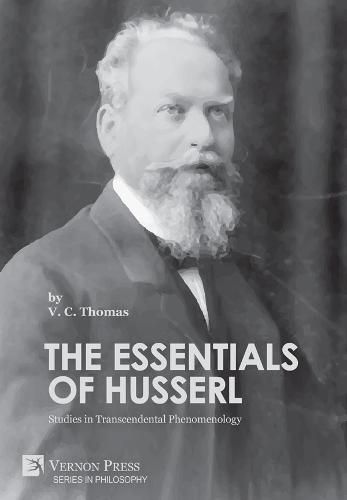Readings Newsletter
Become a Readings Member to make your shopping experience even easier.
Sign in or sign up for free!
You’re not far away from qualifying for FREE standard shipping within Australia
You’ve qualified for FREE standard shipping within Australia
The cart is loading…






This title is printed to order. This book may have been self-published. If so, we cannot guarantee the quality of the content. In the main most books will have gone through the editing process however some may not. We therefore suggest that you be aware of this before ordering this book. If in doubt check either the author or publisher’s details as we are unable to accept any returns unless they are faulty. Please contact us if you have any questions.
Known as the founder of the phenomenological movement, this book examines Husserl's various phases of phenomenology during his realist, transcendental, static, genetic, and post-Crisis (of European Sciences) periods. Consisting of ten carefully researched and thoroughly examined essays, this book describes Husserl's concepts and ideas through numerous examples and diagrammatic representations, in a bid to elucidate the nuances of phenomenology for its readers.
Valuable insights into Husserl's realist phase are made in the chapter on Meaning, and the chapters on Natural Attitude, Epoche and Phenomenological Reduction, while the chapter on Noesis & Noema symbolizes the transcendental phase. Thomas points out Husserl's transition from static to genetic phenomenology in the chapter on Lived Body, with the chapters on Lifeworld, and the Notion of the Other, later focusing on this perspective. Husserl's entire phenomenological space, including his pre-phenomenological period, are covered in the chapter on Lived Time. However, the chapters on Phenomenology: The Study of Self and Beyond, and Consciousness and Intentionality are the fulcrums upon which the edifice of phenomenology turns. The final chapter on Presuppositionlessness in phenomenology expresses Thomas' personal enquiries into Husserl's contention that phenomenology is a presuppositionless science. This book will be of particular interest to research scholars and post-graduate students in the areas of Philosophy and Social Sciences, as well as those interested in contemporary Western Philosophy, and the history and development of Ideas.
$9.00 standard shipping within Australia
FREE standard shipping within Australia for orders over $100.00
Express & International shipping calculated at checkout
This title is printed to order. This book may have been self-published. If so, we cannot guarantee the quality of the content. In the main most books will have gone through the editing process however some may not. We therefore suggest that you be aware of this before ordering this book. If in doubt check either the author or publisher’s details as we are unable to accept any returns unless they are faulty. Please contact us if you have any questions.
Known as the founder of the phenomenological movement, this book examines Husserl's various phases of phenomenology during his realist, transcendental, static, genetic, and post-Crisis (of European Sciences) periods. Consisting of ten carefully researched and thoroughly examined essays, this book describes Husserl's concepts and ideas through numerous examples and diagrammatic representations, in a bid to elucidate the nuances of phenomenology for its readers.
Valuable insights into Husserl's realist phase are made in the chapter on Meaning, and the chapters on Natural Attitude, Epoche and Phenomenological Reduction, while the chapter on Noesis & Noema symbolizes the transcendental phase. Thomas points out Husserl's transition from static to genetic phenomenology in the chapter on Lived Body, with the chapters on Lifeworld, and the Notion of the Other, later focusing on this perspective. Husserl's entire phenomenological space, including his pre-phenomenological period, are covered in the chapter on Lived Time. However, the chapters on Phenomenology: The Study of Self and Beyond, and Consciousness and Intentionality are the fulcrums upon which the edifice of phenomenology turns. The final chapter on Presuppositionlessness in phenomenology expresses Thomas' personal enquiries into Husserl's contention that phenomenology is a presuppositionless science. This book will be of particular interest to research scholars and post-graduate students in the areas of Philosophy and Social Sciences, as well as those interested in contemporary Western Philosophy, and the history and development of Ideas.